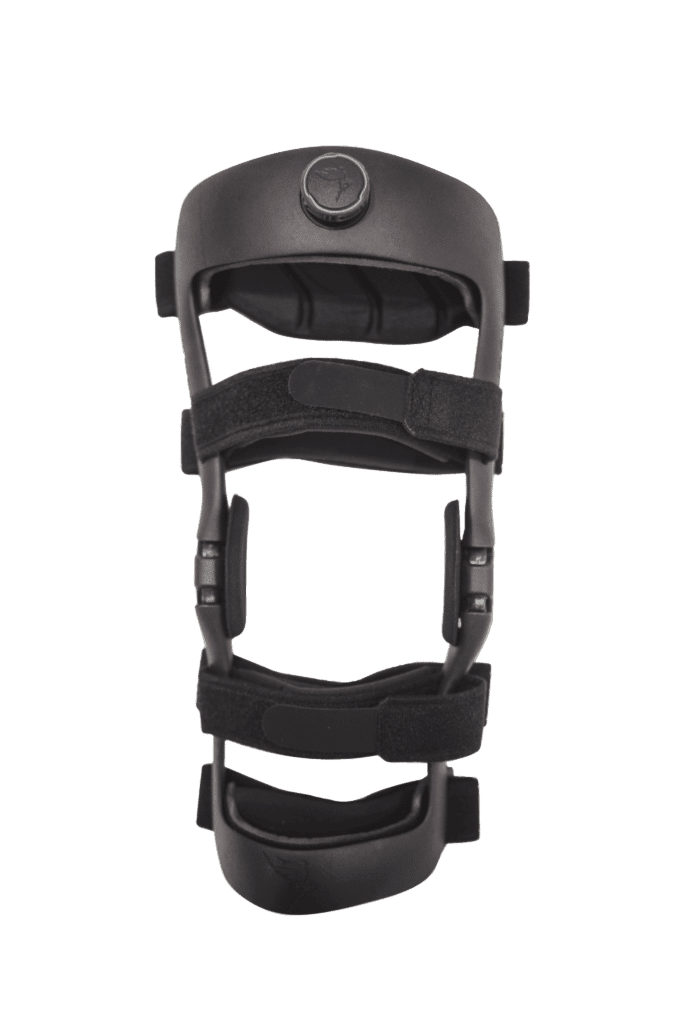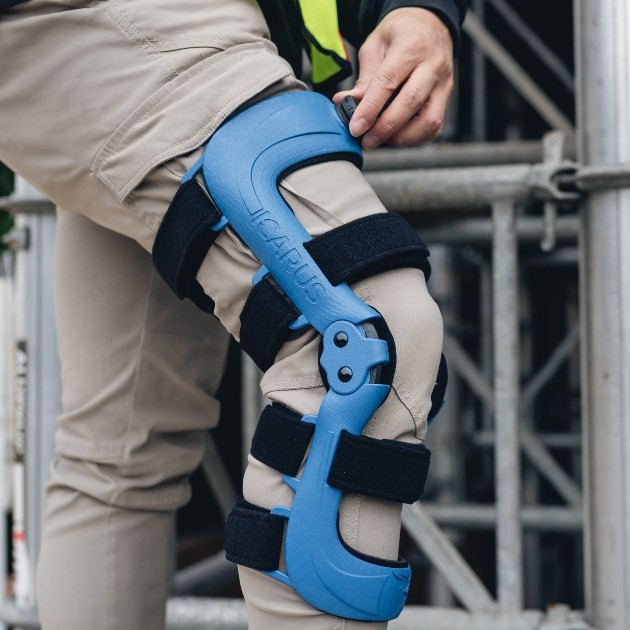It’s well known that knee injuries and chronic knee conditions can make working difficult. Using a medical knee brace can help improve function and overall mobility, allowing you to perform all your daily tasks without being hindered by pain and weakness in your knee. However, before you can start wearing a knee brace to help you at work, it is essential to examine the underlying cause of your knee pain for the best treatment.
Different types of knee injuries require different knee braces to treat them, and a doctor is the only medical professional who can accurately advise you on the best type and fit for your body and lifestyle. In this article, we will cover the different types of knee braces available and how each one works to help you move more freely and alleviate pain at work.
Unloader Knee Braces
An unloader knee brace helps shift weight off the injured or weakened portion of the knee, reducing strain, pressure, and pain while stabilizing the joint. Unloader braces can be helpful for people who have arthritis in their knees. In fact, unloading knee braces are one of the most recommended forms of nonsurgical treatment for osteoarthritis in the knees.
You may also benefit from an unloader knee brace if you suffer from quadriceps weakness, have suffered damage from a stroke or nerve damage, or need support after surgery. The Icarus Medical Ascender Knee Brace is designed with a variable-tension system that can gradually decrease tension over time as a knee injury heals.
Offering multi-compartmental, patellofemoral, and tibiofemoral unloading, the Ascender knee brace is one of the most dynamic unloading knee braces on the market. In addition to being custom-made for each client, it is also fully adjustable for maximum comfort. The personalized design ensures that you can receive relief right away, unlike many other standard-make or over-the-counter knee braces that can potentially worsen symptoms.
Functional Knee Braces
A functional knee brace stabilizes the joint during rotational movements. Individuals who spend a lot of time on their feet and perform physically demanding tasks may benefit from a functional knee brace. Functional knee braces could also benefit individuals who have suffered an anterior cruciate ligament (ACL) tear or similar injury.
White-collar workers who spend most of their days at a desk or in an office setting may benefit from a functional knee brace in some cases. Ultimately, the prescription of a functional knee brace depends on the type of injury and the types of movements the individual most commonly makes.
Prophylactic Knee Braces
These types of knee braces are often worn by athletes who face a high risk of tears and other knee injuries. They can also be prescribed to manual labor workers who are at a greater risk of experiencing a contact injury due to heavy weight or brunt force. Prophylactic knee braces are preventative; they help protect your knee from the stress that could harm the medial collateral ligament (MCL).
For those whose greatest risk of contact injury comes from the side (lateral) or middle (medial) regions of the knee, a prophylactic knee brace could be an excellent preventative solution. It is not recommended for anyone with a knee injury or actively recovering from one.
Compression Knee Braces
If you spend a long time at your desk at work, you may experience stiffness and joint pain in your knees. Compression braces help reduce inflammation around the knee joint and provide relief throughout the day. Those who have suffered previous knee injuries, people with arthritis, or chronic pain sufferers could benefit from a compression knee brace.
Those who work in warehouses, construction, plumbing, electrical, and other labor-intensive jobs can also be prone to developing bursitis. This condition inflames the bursae, thin sacs filled with fluid that offer cushioning between bones, muscles, and connective tissues. Compression knee braces may help improve bursitis symptoms by reducing inflammation and promoting vascular circulation.
How Long Should I Wear a Knee Brace?
Doctors tend to recommend knee braces for six months to a year for severe injuries. Patients with ongoing conditions or permanent damage may wear a knee brace daily for added stability and support. Those in labor-intensive jobs may need greater knee support when performing rigorous or strenuous activity. Doctors can suggest the right type of knee brace for a patients line of work, their health, and preferences, as it varies greatly from person to person.
Finding The Right Knee Brace for You
Visit our products page to learn more about the Ascender knee brace and how it can help you. You can also contact us to speak with a representative from our team and learn more. We are happy to answer any questions you may have and help you start the process of ordering your custom-fitted knee brace.

